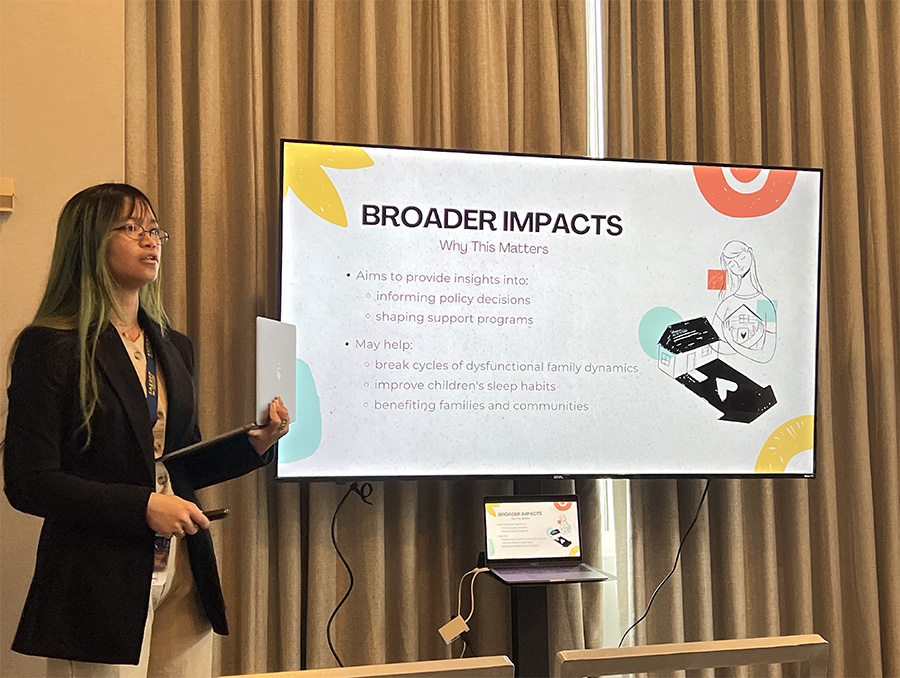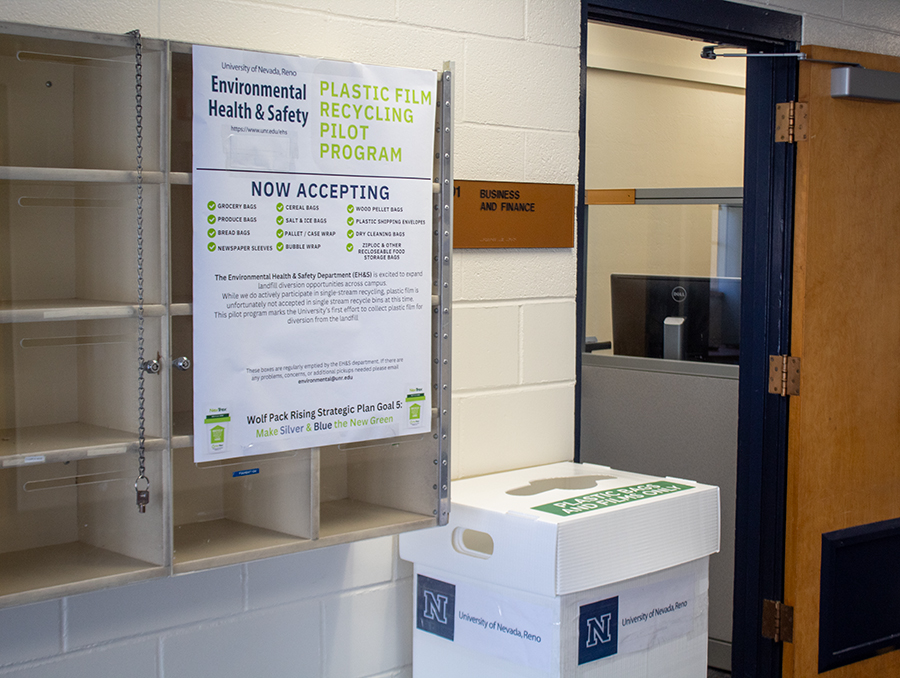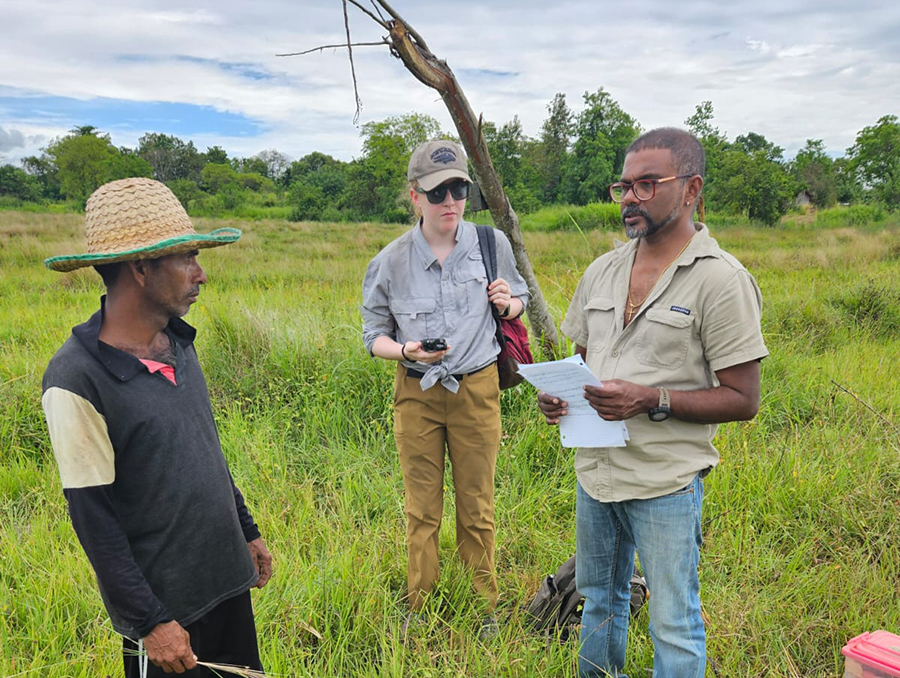How do I get into a lab? What if I do not know absolutely everything I could possibly know about a research topic? Am I qualified enough to get involved? Audrie Escover, a recent immigrant and first-generation student, provides insight into understanding the ins and outs of undergraduate research. Rather than stating that getting involved isn’t as daunting as it seems, Escover provides a memorable excerpt of this fact.
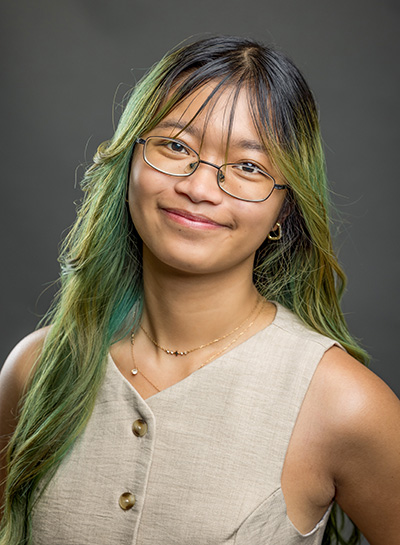
“Becoming an undergraduate researcher is neither difficult nor lonely,” they said. “The path enriches your professional career, personal life and makes the world a better place."
Escover, a Nevada First-Gen Network student and an Honors College student, is a junior studying for a bachelor’s of science degree in the field of psychology within the College of Science. She is involved in undergraduate research through the McNair Scholars Program and presented a research poster at the Wolf Pack Discoveries Symposium this past summer. Being part of a multitude of programs and building these accolades takes a lot of effort, but Escover proves she is no stranger to hard work.
“Being a part of the first-gen student programs like TRIO, I was able to transfer to McNair, so the privilege of having access to resources and guidance from my coaches, really helped me get into research,” Escover said. “I’m thankful for the opportunities I get from the McNair Scholars and the people who help me be here. But also, being able to apply to NURA [Nevada Undergraduate Research Award] and all these grants are really helpful.”
Growing up in the Philippines, Escover experienced different cultures and beliefs, and became interested in how those differences affect families and childhood development. She believes in the fact that adult problems and issues with mental health start in adolescence while growing up in the childhood home.
“I personally believe and I am an advocate for healthy development, and for sure everyone would want that as well; I believe that any problems or issues that we have as humans start within the family unit,” she said. “And so, looking into and exploring this is also based on my experience.”
Escover's first experience with research began in a race-based trauma lab, which brought her to the family and childhood development lab. From each of their experiences in these labs, Escover decided to explore and advocate for community and cultural research.
“Being able to understand how family history plays a role into our development and how we parent our children is really, really interesting to me,” Escover said. “My goal is to go to grad school and be a mentor to future scholars or students; that is was encourages and pushes me forward.”
Escover has traversed the University experience and has made the most out of it.
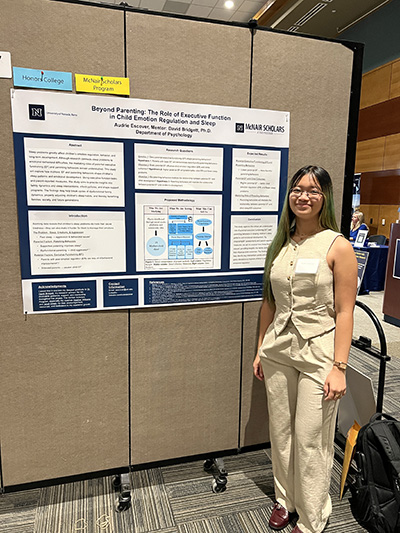
“I think just trusting yourself and being kind and patient – it might be hard at first in finding a research lab or figuring out what you want to do in a research topic – but it is still good to take that first step and then go from there,” she said. “I think the more that I learn, the more that I’m aware that I don’t know everything. I feel like that might be scary for other people – it was a fear of mine – but I was able to shift my perspective and learn so much more; I’m happy with that and I am content.”
Escover encourages other undergraduate students to consider research.
“Despite where you are now and where you come from, you have the capability to get involved in research,” she said. “And, if you don’t want to be a contributor for life, it can still open up immense opportunity and perspective in life. Surround yourself with good people and a supportive system, and you never know where it will take you and how it may change your life.”
Currently, Escover is in the process of researching the executive functioning of parents and their children. In the lab, she is examining parenting behaviors and interactions that come into play during development.
